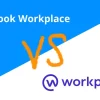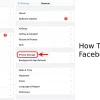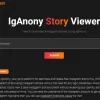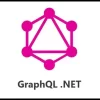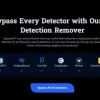In today’s competitive business geography, acquiring and retaining top gifts is pivotal for an association’s success. The traditional styles of seeker assessment have evolved significantly with the integration of technology and data-driven perceptivity. This article delves into the realm of talent assessment and highlights the role of advanced candidate assessment tools in optimizing talent acquisition processes.
The Evolution of Talent Assessment: From Intuition to Data-Driven Insights
The Shift Towards Data-Driven Decision Making
In the past, talent accession frequently reckoned on private judgment and suspicion. Still, the digital age has steered in a new period of substantiation- grounded decision timber. Advanced seeker assessment tools influence data analytics, psychometrics, and artificial intelligence to give associations with comprehensive perceptivity into campaigners’ chops, capabilities, and implicit artistic fit.
The Role of Psychometrics in Talent Assessment
Psychometric assessments have gained prominence as a reliable method to evaluate candidates objectively. These assessments measure cognitive abilities, personality traits, and behavioral tendencies. By using standardized tools, organizations can assess a candidate’s suitability for a specific role and predict their performance in the workplace.
Key Components of Effective Candidate Assessment Tools
Skill and Competency Evaluation
Modern candidate assessment tools incorporate simulations, case studies, and practical exercises to assess a candidate’s actual skills and competencies. These tools provide a more accurate representation of a candidate’s abilities, enabling recruiters to make informed decisions based on real-world scenarios.
Cultural Fit Assessment
Cultural fit is paramount for a candidate’s success within an organization. Advanced assessment tools utilize innovative techniques, such as culture-fit surveys and scenario-based assessments, to gauge how well a candidate aligns with an organization’s values, mission, and work environment.
Predictive Analytics for Performance Forecasting
One of the most significant advantages of advanced assessment tools is their capability to prognosticate a seeker’s unborn performance grounded on literal data and marks. By assaying patterns and correlations, associations can identify campaigners who are likely to exceed in specific places, thereby reducing development and enhancing overall productivity.
Enhancing Recruitment Efficiency and Effectiveness
Streamlining the Screening Process
Traditional recruitment processes are often time-consuming and resource-intensive. Advanced assessment tools automate the initial stages of candidate screening, allowing recruiters to focus their efforts on evaluating pre-qualified candidates who are more likely to be a good fit for the organization.
Reducing Bias and Promoting Diversity
Unconscious bias can inadvertently influence hiring decisions. Candidate assessment tools mitigate bias by focusing on objective data and quantifiable metrics, ensuring that candidates are evaluated solely based on their qualifications and potential. This approach promotes diversity and inclusivity within the workforce.
Implementing Advanced Candidate Assessment Tools: Best Practices
Aligning Assessment with Organizational Goals
Before implementing candidate assessment tools, organizations should define their talent acquisition objectives and tailor their assessment strategies accordingly. Customization ensures that the tools effectively measure the competencies and qualities crucial for success within a specific role and the organization as a whole.
Training and Skill Development for Recruiters
To make the most of advanced assessment tools, recruiters need to be trained in their usage and interpretation. Proper training equips recruiters with the skills to analyze assessment results accurately and make well-informed decisions based on the insights provided by the tools.
The Future of Talent Assessment: Continuous Learning and Improvement
Embracing Technological Advancements
As technology continues to evolve, so will candidate assessment tools. The incorporation of machine learning and natural language processing will enable these tools to provide even more precise and nuanced evaluations, leading to better hiring decisions.
Iterative Feedback and Enhancement
Continuous feedback loops and data analysis will allow organizations to refine their assessment strategies over time. By analyzing the performance of hired candidates and comparing it with assessment results, organizations can identify areas for improvement and fine-tune their talent acquisition processes.
Navigating Challenges and Ethical Considerations in Talent Assessment
Ensuring Data Privacy and Security
With the increased reliance on technology and data, organizations must prioritize data privacy and security. Candidate assessment tools often collect sensitive information, and it’s essential to adhere to strict data protection regulations to maintain candidates’ trust and safeguard their personal information.
Mitigating Algorithmic Bias
While candidate assessment tools aim to reduce bias, they can inadvertently perpetuate existing biases present in the data they are trained on. Organizations must continuously monitor and adjust these tools to ensure fair and equitable evaluations for candidates from diverse backgrounds.
Tailoring Assessments for Different Roles and Levels
Customizing Assessments for Senior Leadership Roles
Leadership roles demand unique qualities and competencies. Advanced candidate assessment tools can be fine-tuned to evaluate attributes such as strategic thinking, decision-making, and emotional intelligence, enabling organizations to identify individuals who can drive organizational growth and success.
Adapting Assessments for Technical Positions
Technical roles require specific technical skills and problem-solving abilities. These assessments can include coding challenges, technical simulations, and real-world scenario evaluations to gauge a candidate’s proficiency and potential contributions to the organization.
Measuring Long-Term Potential and Adaptability
Assessing Learning Agility
The ability to learn quickly and adapt to new challenges is crucial in a rapidly changing business landscape. Advanced candidate assessment tools can incorporate assessments of learning agility and adaptability to identify candidates who have the potential to thrive in evolving roles and industries.
Evaluating Leadership Potential
Identifying candidates with leadership potential goes beyond current skills and competencies. Assessment tools can delve into a candidate’s capacity to inspire and motivate teams, foster innovation, and drive positive change within the organization.
Conclusion:
In the dynamic landscape of talent acquisition, advanced candidate assessment tools have emerged as a game-changer. By leveraging data-driven insights, psychometric evaluations, and predictive analytics, organizations can make more informed, unbiased, and effective hiring decisions. As these tools continue to evolve, they will play an integral role in shaping the future of talent assessment and optimizing the acquisition of top-tier talent.
In an era where ethical considerations are paramount, Mercer | Mettl takes the lead in algorithmic fairness. Their commitment to reducing bias and promoting diversity is embedded in their AI-powered assessments. By continually fine-tuning their algorithms and benchmarking against real-world data, Mercer | Mettl strives to provide a level playing field where candidates are assessed based on their merits rather than any preconceived notions.


